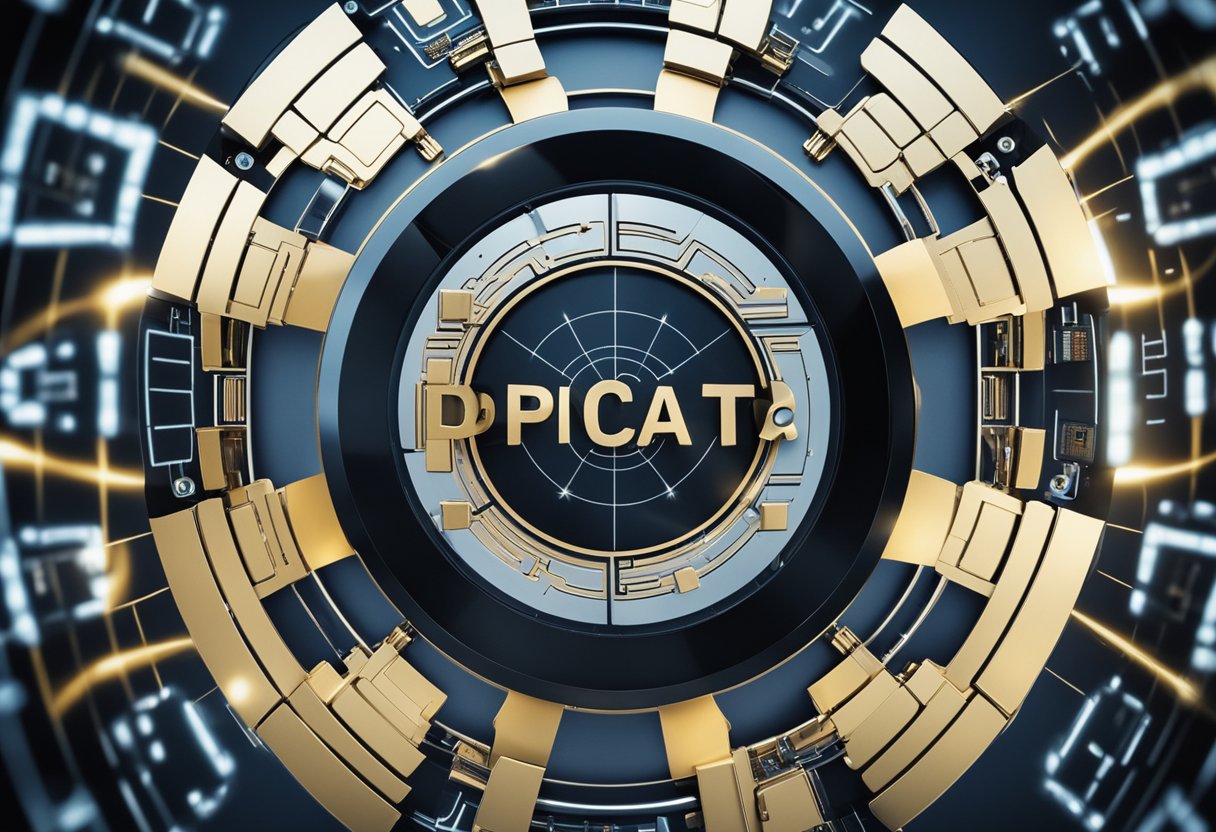The Use of Smart Contracts in Post-Trade Settlement: A Comprehensive Guide
Unlock the full potential of smart contracts in post-trade settlement. Our comprehensive guide provides expert insights and practical tips to help you get started.

The use of smart contracts in post-trade settlement has been gaining traction in recent years. Smart contracts are computer programs that automatically execute the terms of a contract when certain conditions are met. They are self-executing and do not require intermediaries to verify the transaction. This makes them an ideal solution for post-trade settlement, which involves the transfer of assets between parties after a trade has been executed.

Understanding smart contracts is essential for anyone interested in post-trade settlement. Smart contracts are digital records that encapsulate terms and mutualize workflows. They offer an alternative to traditional settlement processes, which can be time-consuming and prone to errors. By automating settlement processes, smart contracts can reduce settlement times and improve the efficiency of post-trade settlement.
Smart contracts in post-trade settlement rely heavily on blockchain technology. Blockchain is a distributed ledger technology that enables secure, transparent, and tamper-proof transactions. Smart contracts can verify and record transactions on a decentralized ledger using blockchain. This reduces the risk of fraud and ensures that settlement processes are transparent and secure.
Key Takeaways
- Smart contracts are self-executing computer programs that automate the terms of a contract when certain conditions are met.
- Smart contracts offer an alternative to traditional settlement processes, which can be time-consuming and prone to errors.
- Intelligent contracts rely heavily on blockchain technology to ensure that transactions are secure, transparent, and tamper-proof.
Understanding Smart Contracts
Smart contracts are self-executing digital contracts that use blockchain technology to automate and enforce the negotiation and performance of a contract. They are designed to be transparent, secure, and tamper-proof, and they can be programmed to execute automatically when certain conditions are met. Smart contracts are built on blockchain technology, a decentralized, distributed ledger that records transactions securely and transparently.
One of the most popular platforms for building smart contracts is Ethereum, an open-source blockchain platform that allows developers to build decentralized applications (dApps) using smart contracts. Ethereum's innovative contract technology is Turing-complete, meaning it can execute any program expressed in code.
Smart contracts can be used for various applications, including post-trade settlement. They can help to automate the settlement process by eliminating the need for intermediaries and reducing settlement times. Smart contracts can also help to reduce the risk of fraud and errors by automating the verification and execution of transactions.
Smart contracts are typically written in a programming language, such as Solidity, specifically designed for writing smart contracts on the Ethereum platform. Once a smart contract is deployed on the blockchain, it becomes immutable, meaning it cannot be changed or modified.
Smart contracts are a powerful tool that can help automate and streamline many processes, including post-trade settlement. They are transparent, secure, and tamper-proof, and they can help reduce the risk of fraud and errors while improving efficiency and reducing costs.
Smart Contracts in Post-Trade Settlement
Intelligent contracts can revolutionize post-trade settlement by creating a more efficient and transparent process. Settlement is the final step in the trade life cycle, where securities are transferred from the seller to the buyer in return for payment. Settlement processes are complex and involve multiple parties, which can lead to errors and delays. Smart contracts can help to automate and streamline these processes, reducing the risk of errors and increasing transparency.
One of the main benefits of smart contracts is that they can be used to automate the reconciliation process. Reconciliation is comparing the trade details between the buyer and seller to ensure they match. This process can be time-consuming and prone to errors, but smart contracts can automate it by reconciling the trade details and ensuring they reach.
Smart contracts can also improve transparency in post-trade settlement by providing a transparent and auditable trade record. This can help to reduce the risk of fraud and improve trust between the parties involved in the trade. Additionally, smart contracts can provide real-time updates on the status of the settlement process, which can help to reduce the risk of delays and errors.
Delivery versus payment (DVP) settlement is a sequential transfer process that requires the purchasing party to act first and without certainty that the seller will deliver. Smart contracts can improve the DVP process by creating a path for low-risk settlement options, such as simultaneous delivery and payment. This can help to reduce the risk of settlement failures and increase the efficiency of the settlement process.
Overall, smart contracts have the potential to transform post-trade settlement by reducing the risk of errors, increasing transparency, and improving efficiency. By automating and streamlining settlement processes, smart contracts can help to reduce costs and improve the overall trading experience.
Role of Blockchain Technology

Blockchain technology plays a significant role in post-trade settlement by providing a secure, transparent, and immutable transaction platform. The technology is based on distributed ledger technology (DLT), which provides a decentralized database of transactions maintained by a computer network. This makes it virtually impossible for any single entity to manipulate the data or commit fraud.
One of the key benefits of blockchain technology in post-trade settlement is the elimination of intermediaries. Blockchain technology enables peer-to-peer transactions, which means that parties can transact directly with one another without the need for an intermediary. This reduces transaction costs and speeds up settlement times.
Another benefit of blockchain technology in post-trade settlement is its increased transparency. All transactions are recorded on the blockchain, making them visible to all parties involved. This enables greater transparency and reduces the risk of fraud.
Blockchain technology also provides greater security in post-trade settlement. The technology is based on advanced cryptographic algorithms that ensure that transactions are secure and tamper-proof. This reduces the risk of cyber-attacks and other security breaches.
Overall, blockchain technology has the potential to revolutionize post-trade settlement by providing a more efficient, transparent, and secure platform for transactions. As the technology continues to evolve, we will likely see even greater adoption of blockchain technology in post-trade settlement and other areas of finance.
Advantages of Using Smart Contracts

Smart contracts have numerous advantages over traditional post-trade settlement methods. They offer increased transparency, speed, security, privacy, and efficiency while reducing transaction costs.
One of the primary benefits of smart contracts is their transparency. All parties can view the contract's terms and conditions anytime, ensuring everyone is on the same page. This transparency reduces the likelihood of disputes and increases trust between parties.
Smart contracts also offer increased speed compared to traditional settlement methods. Because smart contracts are automated and self-executing, they can be completed in a matter of seconds or minutes rather than days or weeks. This increased speed reduces the risk of errors and delays, increasing efficiency.
In addition to increased speed, intelligent contracts also offer enhanced security. Smart contracts are tamper-proof and cannot be altered once executed, ensuring that all parties involved are protected from fraud and other malicious activities.
Smart contracts also offer increased privacy. Because smart contracts are self-executing, they do not require a third party to oversee the transaction, reducing the risk of data breaches and other privacy concerns.
Finally, smart contracts offer increased efficiency while reducing transaction costs. Smart contracts automate many of the steps involved in traditional settlement methods, reducing the need for manual intervention and streamlining the process. This increased efficiency reduces transaction costs, making intelligent contracts a cost-effective solution for post-trade settlement.
Overall, smart contracts offer numerous advantages over traditional post-trade settlement methods. They offer increased transparency, speed, security, privacy, and efficiency while reducing transaction costs, making them an ideal solution for businesses looking to streamline their post-trade settlement processes.
Challenges and Implications

Using smart contracts in the post-trade settlement has challenges and implications, including security, privacy, scalability, latency, immutability, and requirements.
Security
One of the most significant concerns with intelligent contracts is security. Smart contracts are only as secure as the code written to execute them. Any vulnerabilities in the code can be exploited, leading to significant financial losses. Therefore, it is crucial to ensure that the code is written correctly and that all parties involved in the transaction have reviewed and approved the code before it is executed.
Privacy
Another concern with intelligent contracts is privacy. Smart contracts are stored on a public blockchain, meaning anyone can view the code and the transactions executed by the contract. While this transparency is a benefit in many cases, it can also be a disadvantage regarding sensitive financial transactions. Therefore, ensuring that the smart contract is designed to protect the parties' privacy in the transaction is essential.
Scalability
Smart contracts can also face scalability issues. As the number of transactions on a blockchain increases, the time it takes to execute a smart contract can also increase. This can lead to delays in post-trade settlement, which can be costly for all parties involved. Therefore, ensuring that the blockchain platform used to execute the smart contract is scalable and can handle a high volume of transactions is crucial.
Latency
Latency is another issue that can arise with smart contracts. Smart contracts are executed on a blockchain, meaning the time it takes to execute a contract can vary depending on the network's current state. This can lead to delays in post-trade settlement, which can be costly for all parties involved. Therefore, ensuring that the smart contract is designed to minimize latency and that all parties involved in the transaction are aware of the potential delays is essential.
Immutability
Smart contracts are immutable, which means that once a contract is executed, it cannot be changed. While this is a benefit regarding transparency and security, it can also be a disadvantage when errors occur. Therefore, it is crucial to ensure that the smart contract is designed to minimize the potential for errors and that all parties involved in the transaction understand the implications of executing an immutable contract.
Requirements
Smart contracts have specific requirements that must be met to execute successfully. These requirements can include specific data inputs, time-sensitive conditions, and other variables. Therefore, it is crucial to ensure that all parties involved in the transaction understand the requirements of the smart contract and that the contract is designed to meet those requirements.
Implications
Using smart contracts in post-trade settlement has significant implications for the financial industry. Smart contracts can streamline the settlement process, reduce costs, and increase transparency. However, the challenges associated with smart contracts must be addressed to ensure they are executed securely, efficiently, and effectively.
Real World Applications

Smart contracts have numerous real-world applications in various industries, including real estate, financial institutions, intermediaries, digital assets, digital transformation, and asset-based transactions. In the real estate industry, smart contracts can automate the transfer of ownership and title deeds, reducing the time and costs associated with traditional methods.
Smart contracts can streamline post-trade settlement processes in financial institutions, making them more efficient and cost-effective. By using smart contracts, financial institutions can reduce the need for intermediaries, resulting in faster and more secure transactions.
Intermediaries, such as lawyers and accountants, can also benefit from smart contracts. Smart contracts can automate many intermediaries' functions, reducing the need for their services. This can result in lower client costs and more streamlined intermediary processes.
Digital assets, such as cryptocurrencies, can also benefit from smart contracts. Smart contracts can be used to automate the process of buying and selling digital assets, making transactions faster and more secure. They can also create new financial instruments, such as derivatives, based on digital assets.
Smart contracts are also an essential part of digital transformation initiatives. By using smart contracts, companies can automate many of their business processes, making them more efficient and cost-effective. This can result in increased productivity and profitability.
Finally, smart contracts can be used in asset-based transactions like supply chain financing. By using smart contracts, companies can automate financing of their supply chains, making obtaining financing more accessible and efficient.
In conclusion, intelligent contracts have numerous real-world applications across various industries. They can streamline processes, reduce costs, and increase efficiency, making them an essential tool for companies looking to improve their operations.
Future Perspectives

Using smart contracts in post-trade settlement can revolutionize the financial industry by reducing costs and risks while increasing efficiency and transparency. Collaboration between industry players will be crucial to implement innovative contract technology successfully.
Digital transformation is a crucial driver for adopting smart contracts in post-trade settlement. As more financial institutions embrace digitalization, the demand for faster, more secure, cost-effective settlement methods will increase. Smart contracts can solve these demands by automating the settlement process and reducing the need for intermediaries.
Blockchain technology is at the heart of intelligent contracts, and its use in post-trade settlement offers several advantages. Blockchain's decentralized and immutable nature ensures all parties access the same information, reducing the risk of errors and fraud. Moreover, blockchain's ability to execute smart contracts automatically means that settlement times can be significantly reduced.
Smart contracts can also change the traditional business models of financial institutions. Intelligent contracts can lower costs and increase efficiency by reducing the need for intermediaries, leading to a more competitive market. Furthermore, the transparency provided by smart contracts can increase trust between parties, leading to new business opportunities.
Despite the benefits of smart contracts in post-trade settlement, challenges still need to be addressed. High costs associated with implementing new technology and the need for regulatory compliance are some of the main obstacles. Additionally, the increased risks associated with using new technology in the financial industry cannot be ignored.
In conclusion, the future of post-trade settlement looks promising with smart contracts. In implementing smart contracts, collaboration, digital transformation, blockchain technology, new business models, high costs, and high risks must be considered. As the financial industry evolves, smart contracts will play an increasingly important role in shaping its future.


